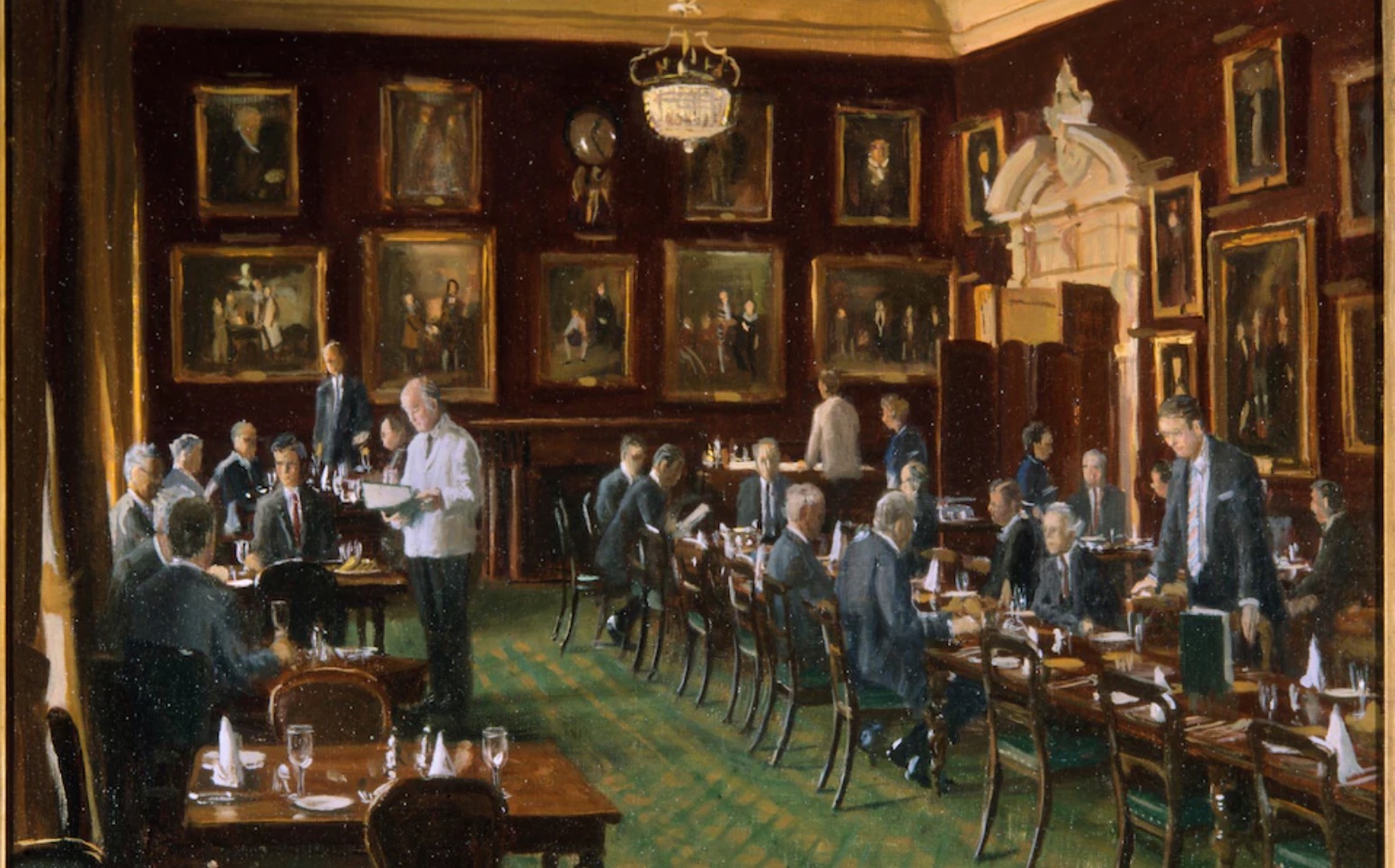Is it really shameful to seek out single-sex social space? Apparently so: when the Guardian published the Garrick Club’s famously secretive all-male membership list earlier this week, the resulting brouhaha prompted the heads of MI6 and the Civil Service to resign their memberships.
The Garrick Club, founded in 1831, is notoriously one of the few remaining elite membership clubs that excludes women. A long-running campaign, backed by Cherie Blair and other high-powered women, has sought to change this. But so far the club has remained obdurate, last month expelling a member who called for the policy to be revised.
The wider contemporary consensus, though, seems to regard a revealed preference for single-sex company as a matter for public shame. That is the clear inference of the decision by Civil Service head Simon Case and MI6’s Richard Moore to resign their memberships following publication of the list.
Old-fashioned liberals might be wondering at this point why we can’t live and let live. Very simply: because a principle is at stake. This idea, articulated as far back as 1851 by the Victorian liberal feminist Harriet Taylor Mill, understands sex as “a distinction as accidental as that of colour, and fully irrelevant to all questions of government”. Men and women, then, should be understood as functionally interchangeable, meaning an older default of sex segregation across most areas of our common life must give way to a modern presumption that both sexes can and should coexist in all contexts.
From this, it has followed that women should be admitted to all previously single-sex arenas of public life, from which they had formerly been excluded. In this vein, too, the principle of interchangeability dissolved most previously all-male social groups, from the Boy Scouts to nearly every private members’ club — except a few holdouts such as the Garrick.
The change has most markedly benefited elite women, who now flourish across almost all areas of public life. Over time, though, the ineluctable onward march of formal interchangeability has begun to reveal some negative second-order consequences for certain groups of women, mostly further down the social scale. If sex is “incidental”, as Mill puts it, being a woman shouldn’t even require you to be female, meaning there are no grounds for excluding males who identify as “women” from all-female settings. This has prompted a wave of demands for male “women” to be included in female single-sex spaces, triggering a ferocious gender-critical feminist fightback.
These targeted rearguard actions against some side-effects of the liberal-feminist drive for universal human interchangeability have secured several major policy changes in areas most egregiously impacted, such as sports and prisons. Single-sex social spaces, though, seem more difficult to defend. The Equality Act 2010 contains provisions for single-sex groups where this is “a proportionate means to achieve a legitimate aim”. But liberal feminism opposes on principle the claim that men and women should be at liberty to associate in the company only of their sex, for any reason.
While this worldview dominates, the onus remains on those who wish to so associate to explain, perhaps at considerable legal cost, why keeping their lesbian bar or farmers’ society single sex is “proportionate” and “legitimate”. Such qualitative assessments are chronically vulnerable to the prevailing political winds; and as the Garrick debacle reveals, these blow strongly in favour of interchangeability.
This reflects a broader female ambivalence: despite the obvious trade-offs, for elite women the Millian principle of interchangeability remains a net positive. As the overrepresentation of elite women on the pro-trans side of the gender wars attests, this demographic grasps instinctively that defending this principle remains in their political interests overall. Regardless of its negative impact on rape survivors, incarcerated women, teenage athletes, and female users of public toilets (never mind men who want to talk among themselves) female aspirants to the upper echelons of public life have an overwhelming interest in advancing the belief that there are no meaningful differences between the sexes.
From this vantage point, even if you concede biological sex there exist only weak grounds for defending all-female social groups. Hold-outs of all-male sociality such as the Garrick, meanwhile, are so egregious an offence against their legitimising premise that despite their vestigial nature in modern London they elicit a kind of exterminationist fury.
Men and women today are largely happy in mixed company across most contexts. This assault on the Garrick amounts to an enforcement mission by the priestesses of interchangeability, on one of the last exceptions, purely on principle. It is breathtakingly totalitarian, and — in its wider implications — profoundly anti-women.
Any feminist who sees the value of single-sex spaces should grasp what is at stake, and mount a full-throated defence of the legitimacy of all-male, as well as all-female social spaces. If we don’t, those lesbian bars don’t stand a chance.











Join the discussion
Join like minded readers that support our journalism by becoming a paid subscriber
To join the discussion in the comments, become a paid subscriber.
Join like minded readers that support our journalism, read unlimited articles and enjoy other subscriber-only benefits.
Subscribe